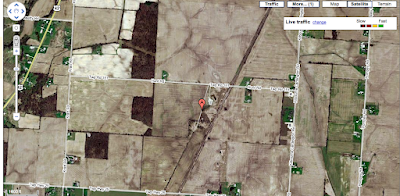 The Ottawa Citizen yesterday took a pot-shot at a small local roofing contractor because of an apparent screw-up of the work on an elderly home owner's roof.
The Ottawa Citizen yesterday took a pot-shot at a small local roofing contractor because of an apparent screw-up of the work on an elderly home owner's roof.The story "Excuses rain down on roofer's work" may disappear from accessible archives in a few days, but reading the story, I cannot help but think, "Why?"
The "Why?" is on two levels. The first is, "Why did the daily newspaper care?" Reading the story, the roofer seems to have done a less-than-perfect job, but he hasn't denied responsibility, absconded, or refused to make good.
The second "Why" is why the roofer didn't get the basics of branding and construction business success right in the first place: That is, doing the job correctly and wasting no time in seriously addressing valid client concerns.
You'll notice I am not naming the roofer in this blog posting. I've made it a general policy not to name negatively individual businesses or organizations unless their wrong-doing is so great that it is worth the risk of libel lawyers and I have factually checked the story with our own resources.
Since I'm writing this blog entry based on observations in another publication -- and since a business owned by the person's father with the same name is not implicated -- publishing an identifiably negative report here would cause unfair harm. (This is especially the case because neither father nor son appear to have grasped how to use the Internet for marketing, and only limited references -- including the negative Citizen article -- are available with a simple Google search.)
This silence unfortunately won't help the roofer (or his father) in the near future, unless they simply don't care about negative publicity. Which is dumb. Because unless you are living in a very deep cave, you know that success in the trades depends on word of mouth and repeat business and negative publicity in a major daily newspaper cannot do you much good in either regard.
Unfortunately, this type of story also hits contractors who get it right. Negative news coverage builds distrust, and distrust is the opposite of effective branding.
Nevertheless, this bad news story creates some good news opportunities.
- Could you offer to make good for the other roofer's mistake? (I've practiced this principal a few times in my business history -- when a competitor screws up, I fix the problem, at no charge. Of course it is easier to do this with some advertising than in rebuilding a roof -- especially one owned by a cranky client.)
- Can you gather an incredible collection of testimonials (videoed if possible) to post on your website and communicate your quality, and market that message -- especially if you serve the neighbourhood served by the victims?
- Can you get a neighbour you've served to send a letter of commendation to friends and neighbours?
- Could you write a brief article, "Seven Tips on How to Be Sure to Succeed with Your Roofing Project", and post it on your web site, submit to local community publications, and include it in your marketing materials. The article should not be self-serving; the advice of course should be consistent with your own best practices.








